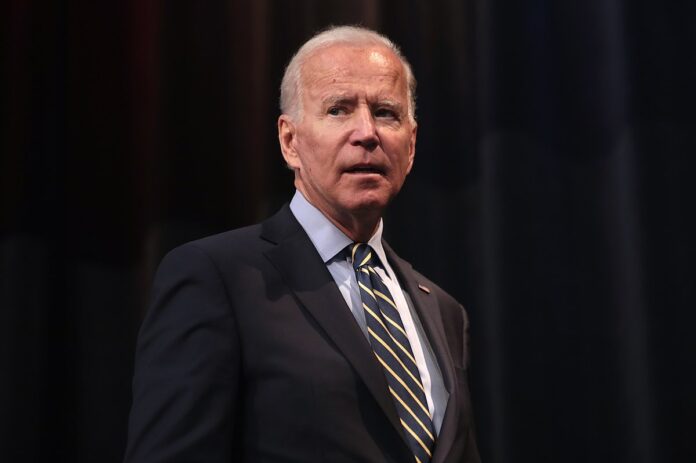Author: Joseph R. Biden, Jr.
Affiliation: Democratic Candidate for the 2020 US Presidential Election
Organization/Publisher: Foreign Affairs
Date/Place: March/April 2020, US
Type of Literature: Journal Article
Word Count: 4477
Link: https://www.foreignaffairs.com/articles/united-states/2020-01-23/why-america-must-lead-again
Keywords: The U.S. Foreign Policy, The 2020 US Presidential Election, Democratic values, and Global Leadership
Brief:
Presidential candidate and former vice president Joseph Biden presents here his comprehensive vision of the most important aspects of his domestic and foreign policies if he becomes president, arguing that the US should regain its global leadership role and immediately get rid of Trump’s negative legacy. Biden believes that the Trump administration has undermined the credibility and influence of the US across the world, and what is more dangerous is Trump’s move away from the democratic values that give power to America and make its people united. With the new global challenges such as the rise of populists, nationalism, authoritarianism, and illiberal regimes across the world, the confidence in democracy among the world’s people has diminished. All of these factors are in the service of Trump and demagogue leaders like him, who encourage them to pursue their narrow political and personal interests. Therefore, the coming president must restore the reputation of the US, its credibility and the world’s confidence in its leadership, and he/she must mobilize allies to confront these new challenges immediately. Biden explains his vision if he wins the presidency through three main sections. The first section relates to what he calls the necessity of “renewing democracy at home,” that the US must reform and revitalize its democracy and strengthen the coalition of democracies across the world and demonstrate its readiness to lead the world again not just with “the example of our power but also with the power of our example.” Therefore, Biden promises to take immediate measures to activate this role, such as putting an end to Trump’s harsh refugee policies, setting the number of annual refugee admissions at 125,000 and seeking to raise it over time, “commensurate with our responsibility and our values,” along with emphasizing the prohibition of torture, ensuring transparency in US military operations, working to combat financial corruption, and preventing the interference of foreign actors and governments in the US elections by creating an ethical committee that enshrines transparency and bridges the gaps that “spoil our democracy.” After taking initial internal measures, Biden intends to host a world summit for democracy to renew the spirit of the United Nations and promote democracy throughout the world. His second section is devoted to US economic security, which Biden sees as a synonym of national security. Focusing on the middle class in society, he argues that “our trade policy has to start at home, by strengthening our greatest asset—our middle class—and making sure that everyone can share in the success of the country.” This requires massive investment in infrastructure and education. Biden, for example, plans to raise the minimum wage to $15 an hour and lead a clean economy revolution to create ten million good new jobs in the country. In addition to his intention to invest heavily in research and development until the US takes the lead in innovation, no excuse “leaves us” behind China and others in terms of clean energy, artificial intelligence or 5G, etc. Biden also sees the need to remove tariff barriers and resist protectionism, affirming that “I will not enter into any new trade agreements until we have invested in Americans and equipped them to succeed in the global economy.” In the third section, Biden presents his comprehensive vision of what should be the US foreign policy, believing that Trump made the US concede the global leadership role that it began seventy years ago, and if it continues abdication of that responsibility then one of two things will happen: someone else will take the United States’ place, but not in a way that advances US’ interests and values; or no one will, and chaos will ensue. Biden admits that the US committed many mistakes in the past, the most prominent was its dependence on the power of its military instead of relying on its full assets of power, as well as neglecting the effective role of diplomacy. Among the priority issues the US should pursue according to him, are the necessity to end “forever wars,” to return the vast majority of the US military forces to home, and to use only a few hundred special forces and intelligence assets to support local allies against common enemies. Also, he sees the need to end US support for the Saudi war in Yemen, strict adherence to Israel’s security, restore the confidence of the US traditional allies, and strengthening joint action against the challenges posed by the illiberal forces of Russia-Putin, China, and other emerging dictatorships. Furthermore, he believes that Washington should lead efforts to reduce carbon emissions by pushing countries such as China (the world’s largest source of carbon emissions) to adhere to international agreements, and through the US rejoining the Paris Climate Agreement. He also sees the need for the US to return to the nuclear deal it concluded with Iran in Obama’s period, pushing re-compliance by activating the diplomatic mechanism and pressuring it with allies instead of acting unilaterally. In sum, the US must once again harness the liberal power that easily crosses borders and mobilizes the world to face new challenges.
By: Djallel Khechib, CIGA Senior Research Associate




